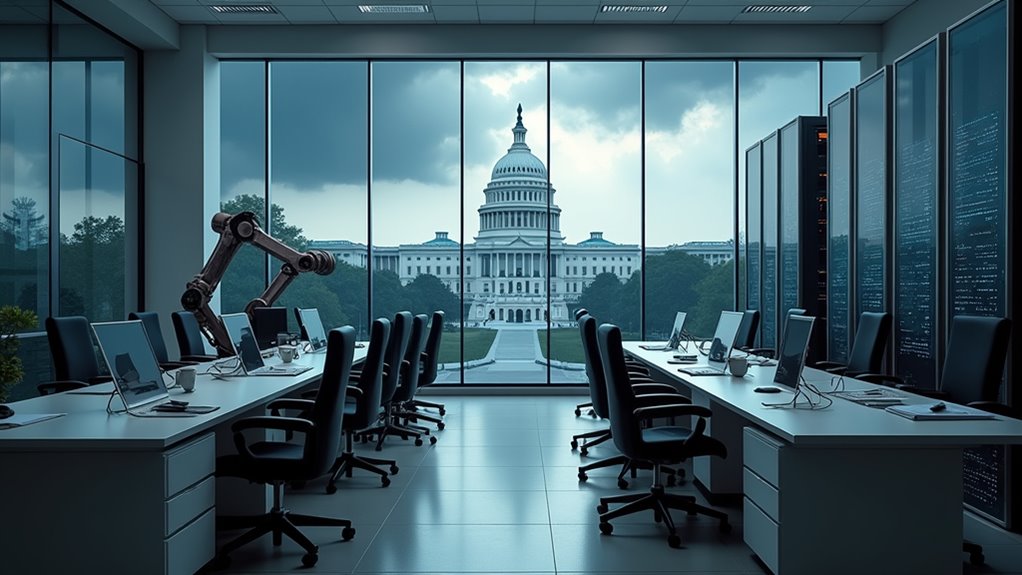The Chip Security Act appears increasingly likely to fragment the global AI landscape. U.S. export controls are already hitting American companies hard—just ask Nvidia about that $5.5 billion loss. Meanwhile, China’s doubling down on domestic production. Traditional allies face new hurdles accessing cutting-edge tech, potentially creating competing AI ecosystems with distinct capabilities. Think less “one global powerhouse” and more “technological Game of Thrones” with separate castles guarding their AI treasures. The deeper implications might surprise you.
While the U.S. government frantically throws $52 billion at domestic chip manufacturing, the global semiconductor chessboard is getting increasingly complicated. America’s slice of the chip-making pie has shriveled from a hearty 37% in the 1990s to a mere 12% today—about as impressive as a participation trophy at the Olympics.
The CHIPS Act aims to reverse this trend, but like your friend who suddenly gets super into CrossFit, America might be alienating its buddies in the process.
The January 2025 restrictions have created a sort of VIP guest list for AI hardware access. Only 120 countries made the cut, and even traditional allies find themselves facing new hurdles. It’s like America created a tech bouncer who’s suddenly very picky about who gets into the advanced computing club.
America’s new AI bouncer is checking IDs at the tech club door, and even friends are getting the side-eye treatment.
This technological gatekeeping extends beyond just the hardware. AI model weights, high-bandwidth memory, and other previously unregulated technologies now fall under export controls. The Foreign Direct Product Rule has teeth, and the Entity List keeps growing faster than a TikTok trend.
Economic implications? You bet. While pouring $200 billion into AI, quantum computing, and robotics research sounds impressive, cutting off markets in places like Israel, India, and Singapore is the equivalent of scoring on your own goal. U.S. firms might find their global revenue streams drying up faster than a puddle in the Sahara. Major companies like Nvidia have already seen significant financial losses due to these export restrictions, with Nvidia alone taking a $5.5 billion hit.
China, meanwhile, isn’t exactly sitting around pouting. They’re doubling down on domestic chip production with the determination of someone trying to prove their ex wrong. Despite U.S. restrictions, China’s AI ecosystem remains surprisingly robust with DeepSeek’s advancements impacting American financial markets.
The intended effect might be national security, but the unintended consequence could be accelerated competition. The inconsistent regulatory frameworks across regions further complicate compliance for companies operating in global AI markets.
The chess pieces are moving. Allied nations control critical points in the manufacturing value chain, making unilateral U.S. efforts only partially effective.
Without coordinated action, we might see the global AI landscape fracture into competing ecosystems—creating not one powerhouse, but several rival castles with their own moats and drawbridges.









